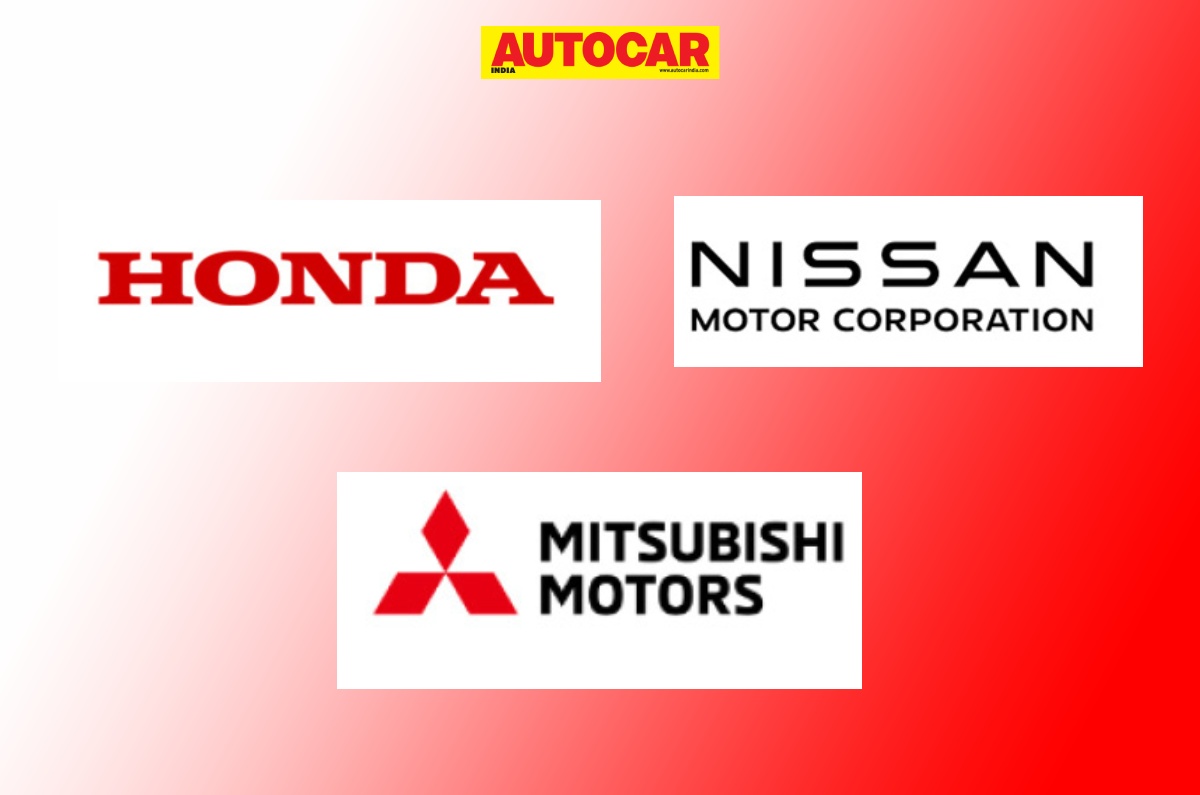Honda and Nissan have confirmed that they will begin talks to merge into a new consolidated holding company, one that could also include Mitsubishi. On Monday, the Japanese auto majors signed a Memorandum of Understanding (MoU) to consider “business integration” besides inking another pact with Mitsubishi to explore how it could become a part of the resultant entity.
- Honda and Nissan aim to reach a definitive agreement by June 2025
- Together, Nissan and Honda sell nearly 75 lakh cars in a year
- A new entity will serve as the parent company by August 2026
The talks of a possible merger between the Japanese companies were first reported by Nikkei last week.
Discussions regarding the merger will begin shortly, and the aim is to reach a definitive agreement by June 2025. If the merger goes through, the brands will remain distinct, but behind the scenes, they will standardise platforms and powertrains, share R&D, and collaborate on manufacturing. Nissan and Honda are Japan’s second and third largest car manufacturers, respectively, and together, they retailed nearly 7.5 million cars last year.
As we had reported in March, the two companies announced plans to form a strategic partnership to develop EVs. Then, in August, they expanded that agreement and included research into software-defined vehicles.
How the Honda-Nissan merger would work
Honda and Nissan plan to form a joint holding company that would serve as the parent firm. That would require a joint share transfer, which will need the approval of both companies’ shareholders. The final agreement will determine the exact share transfer ratio. The new holding entity will be listed on the Tokyo Stock Exchange, with the merger planned to go into place in August 2026.
Nissan and Honda will form a special committee that will come up with the best way to integrate. One key area being looked at is standardising vehicle platforms of both automakers across various segments, which would reduce production complexity and cost while increasing economies of scale. The brands would also streamline their powertrain portfolio, although the new entity would continue offering pure combustion, hybrid, plug-in hybrid and electric models.
Another key area of the merger would be increasing their shared research and development, particularly in areas such as software-defined vehicles, which will be key to future growth. Honda and Nissan will also look to optimise their manufacturing plants and service facilities and integrate their supply-chain network and back-office operations.
The merger will also have significant effects on the broader car industry. Nissan has been in a long-time alliance with French company Renault, and both automakers are set to produce EVs on shared platforms in the coming years.
Also see:
Honda Elevate long term review, 8,900km report


